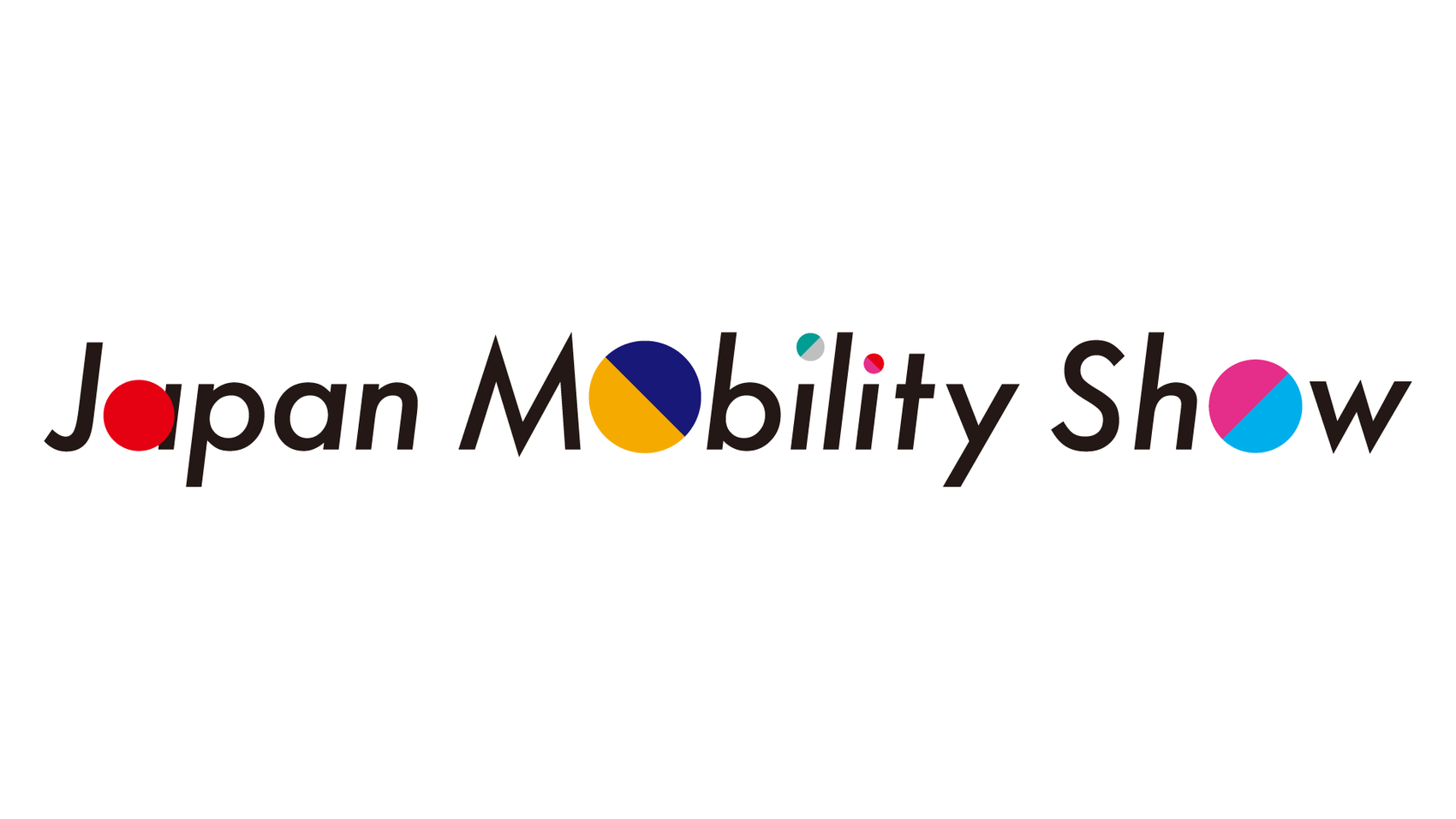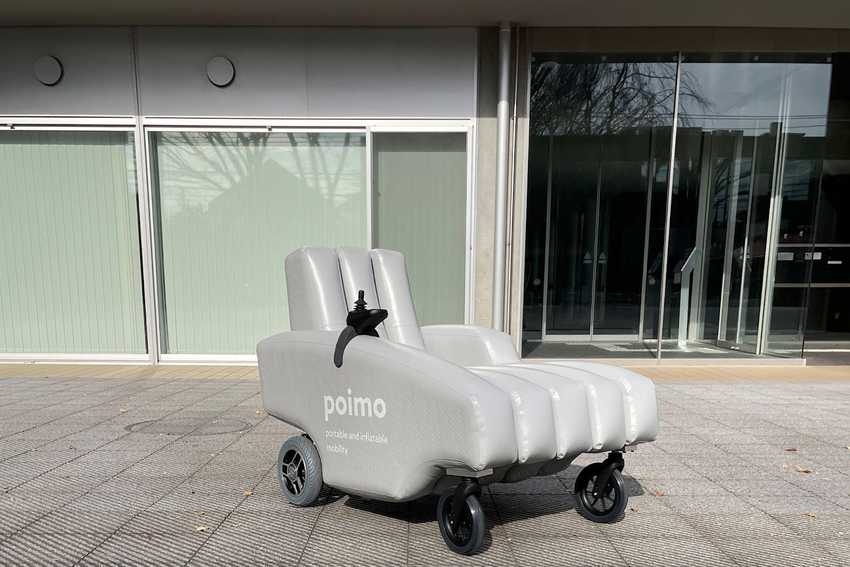Objective
In order to achieve the circular economy that Mercari is aiming for, mobility-related technologies will be essential. We’ve seen a variety of new services in recent years launching under the concept of MaaS (Mobility as a Service), fostering greater interest and attention on last-mile mobility. This has led R4D to work on a new type of electric mobility device that can be built in different shapes and sizes at a low cost to move both people and objects. Poimo’s inflatable body makes it lighter than conventional mobility devices that use metal and resin. The design is also favorable from an environmental and safety perspective, since it requires less energy to move and causes less damage in the case of collision. R4D is working on proof-of-concept experiments to make Poimo publicly available as a last-mile transportation method not only for Mercari users or items purchased on Mercari, but for people and products outside of Mercari as well. This will put Mercari Group one step closer to achieving our goal of realizing a circular economy and reducing environmental impact.
Overview
Poimo is a new type of electric mobility solution that uses an inflatable design. It started as a joint research project between Mercari and Kawahara Laboratory of the University of Tokyo’s School of Engineering. Currently, R4D is working on research while also refining and improving the device for a public release. The inflatable design is what makes Poimo so versatile—it is portable, but once filled with air, it is large enough to carry most people and objects. Users can also adjust the amount of air inside to whatever is most comfortable for them. It’s a new style of mobility that can be folded up, carried around, and then inflated whenever you need it. Poimo’s design is also perfect for customization, since we can cut out any fabric and mold it into any shape. By taking advantage of this ability for customization, we aim to make mobility more inclusive through Poimo. In addition to helping people get around in their everyday lives or on trips, our vision is for it to be used in ways that meet diverse lifestyle needs, like as a lightweight wheelchair or to transport luggage. R4D is also conducting research with the Yasuaki Kakehi Laboratory of the University of Tokyo to create a soft sensor-based controls interface that would be easy and simple for anyone to use. For inquiries regarding this project, please contact r4d-contact@mercari.com.
Publications
Demonstrating LattiSense: A 3D-Printable Resistive Deformation Sensor with Lattice Structures
Rei Sakura, Changyo Han, Yahui Lyu, Keisuke Watanabe, Ryosuke Yamamura and Yasuaki Kakehi ACM Symposium on Computational Fabrication Publication year: 2023
LattiSense: A 3D-Printable Resistive Deformation Sensor with Lattice Structures
Rei Sakura, Changyo Han, Yahui Lyu, Keisuke Watanabe, Ryosuke Yamamura, Yasuaki Kakehi ACM Symposium on Computational Fabrication Publication year: 2023
柔らかい操作インタフェースのアイディア創出を促すワークショップの実践
Mai Kagawa, Kazzmasa Tsujimura, Rei Sakura, Ryosuke Yamamura and Yasuaki Kakehi INTERACTION 2023 Publication year: 2023
Design of 3D-Printed Soft Sensors for Wire Management and Customized Softness.
Rei Sakura, Changyo Han, Keisuke Watanabe, Ryosuke Yamamura, and Yasuaki Kakehi. 2022. Design of 3D-Printed Soft Sensors for Wire Management and Customized Softness. In CHI Conference on Human Factors in Computing Systems Extended Abstracts (CHI EA ‘22). Association for Computing Machinery, New York, NY, USA, Article 192, 1–5.
A Deformable Sensor for Multi-Modal Inputs Based on Conductive Foam with a Single Wire.
Published: K. Watanabe, R. Yamamura, and Y. Kakehi. Extended Abstracts of the 2021 CHI Conference on Human Factors in Computing Systems (CHI EA’21). Association for Computing Machinery, Yokohama, Japan. Publication year: 2021
電動パーソナルモビリティのシェアリング事業に向けた無線充電システムの導入とインセンティブスキームに関する検討
林寛将,笹谷拓也,畑勝裕,山村亮介,川原圭博. 情報処理学会全国大会 2021. Association for Computing Machinery, 2T-03. Publication year: 2021
Effect of Body Materials on Transmission Efficiency and Resonant Frequency in Wirelessly Powered Personal Mobility Devices.
Published: H. Hayashi, K. Hata, T. Sasatani, H. Sato, R. Yamamura, Y. Seong, R. Niiyama, and Y. Kawahara. IEEE WPTC 2020. Association for Computing Machinery, Soul, Korea. Publication year: 2020
Portable and Inflatable Mobility Devices Customizable for Personal Physical Characteristics.
Published: R. Niiyama, H. Sato, K. Tsujimura, K. Narumi, Y. A. Seong, R. Yamamura, Y. Kakehi, and Y. Kawahara. Proceedings of the 33rd Annual ACM Symposium on User Interface Software and Technology (UIST’20). Association for Computing Machinery, pp. 912–923, Virtual (previously Minneapolis, US). Publication year: 2020
電動パーソナルモビリティのシェアリング事業に向けた無線充電システムのシミュレーションによる解析
林寛将,笹谷拓也,畑勝裕,山村亮介,川原圭博. マルチメディア,分散,協調とモバイル (DICOMO2020) シンポジウム. Association for Computing Machinery, 4A-2, pp.520-525. Publication year: 2020
Soft yet Strong Inflatable Structures for a Foldable and Portable Mobility.
Hiroki Sato, Young ah Seong, Ryosuke Yamamura, Hiromasa Hayashi, Katsuhiro Hata, Hisato Ogata, Ryuma Niiyama, and Yoshihiro Kawahara. In Extended Abstracts of the 2020 CHI Conference on Human Factors in Computing Systems (CHI EA ’20). Association for Computing Machinery, New York, NY, USA, 1–4. Publication year: 2020
YouTube Contents
Related Posts
Media
GRAND FRONT OSAKA
mercari R4Dの研究員が様々な業界を経て気づいたこと
日本経済新聞
CES2022 日本から出展したスタートアップに聞く成果と世界の最新トレンド メルカリやアワード受賞企業が登壇【無料】 ◆日経イノベーション・ミートアップ◆
la Repubblica
Dal Giappone arriva Poimo, lo scooter gonfiabile che si infila in uno zaino
South China Morning Post
Will this inflatable scooter expand urban mobility?
New York Post
Weird inflatable scooter is riding into the future






